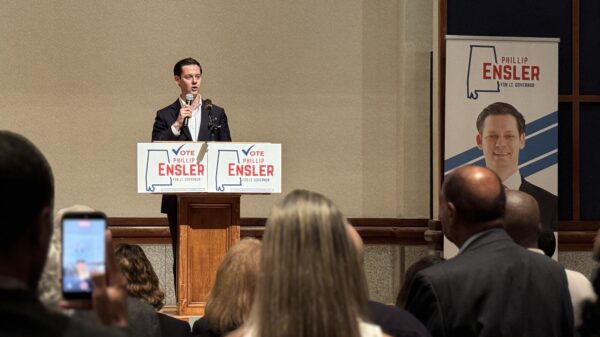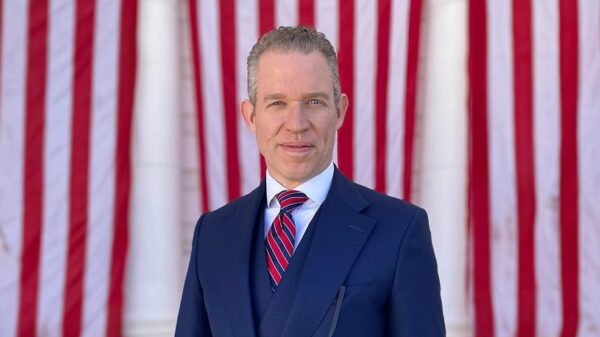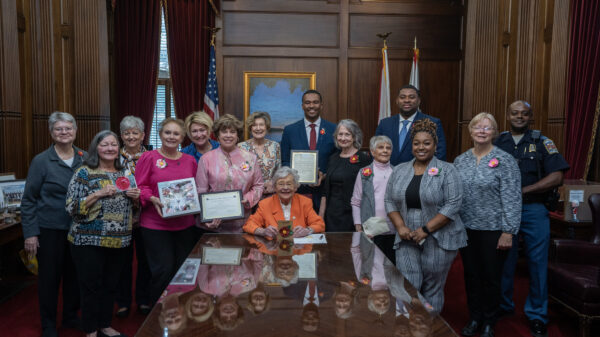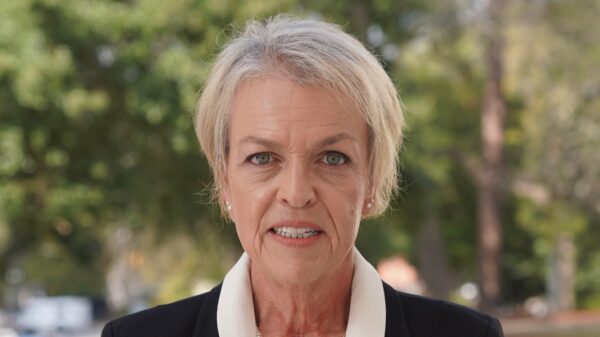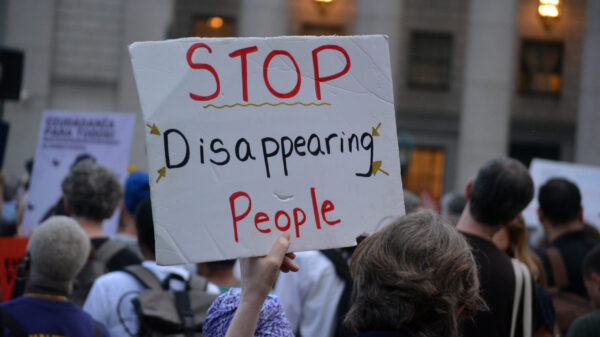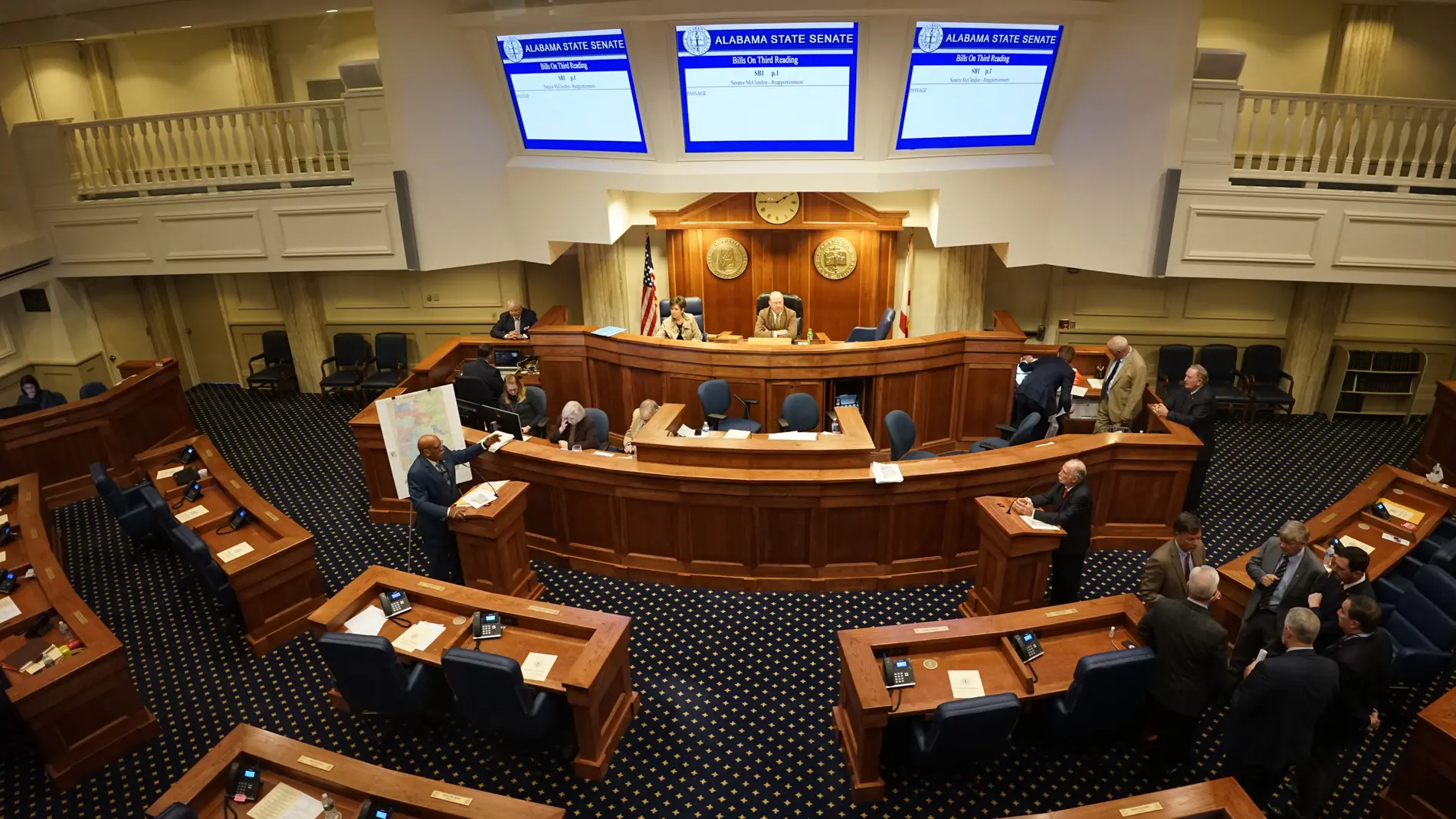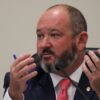Another Alabama legislative session is in the history books — which are safe for the time being since Sen. Chris Elliott’s hostile takeover of the Department of Archives and History failed to take hold. Elliot’s bill is just one of many bad pieces of legislation that were offered up during the 2024 session, and several of them made it across the finish line and will now govern us all.
But there is reason to celebrate — several even worse bills just barely failed to reach the desk of Gov. Kay Ivey. Thank God for that gambling snafu in the waning days or this truly could have cemented its place as one of the worst sessions in history
Public funds for private school students
You can put lipstick on a pig… The CHOOSE Act (Creating Hope and Opportunity for Our Students’ Education) is a cut above bills introduced in previous sessions to create a voucher-like system to divert public funds toward private school–so much so that the Alabama Education Association and other education groups took a neutral position on the bill during a House committee meeting. But it still suffers from the same core problems as all versions of these school voucher programs have: they direct massive amounts of taxpayer money to fund the education of students who are already receiving a private education.
The law requires that at least $100 million be appropriated annually toward the program, which provides up to a $7,000 tax credit per student attending an eligible private school and up to $2,000 per homeschool student (capped at $4,000 per family per year). The legislation includes accountability measures that had been lacking in previous iterations, and the fact that lawmakers have to appropriate the funds each year helps to protect funds already set aside for public education. But the costs to full fund the program once it expands in three years’ time would be massive, upwards of half a billion dollars.
Yet, almost all of that funding will simply amount to a tax break for families that can already afford to send their children to private schools, and do so. Not every family putting their kids through private schools is wealthy, some are making major sacrifices to get their kids the best education possible. But many families in public schools do not have the luxury to send their kids to private school, and even supporters of the CHOOSE Act don’t expect this program to help those students. Supporters have consistently estimated that only 1 to 5 percent of public school students will take advantage of the program.
Since the massive injection of spending does little to change the status quo in terms of what education students are receiving, it’s unclear how the program could be expected to improve the state’s abysmal education standings—despite Ivey’s public statements that the CHOOSE Act is part of her plan to make Alabama a “top 30” state for education before her term is over.
After clearing the hurdle of the education groups, the bill sailed through the Legislature despite Democrat opposition and has been signed into law.
Homogeneity, inequality and exclusion
Diversity, equity and inclusion—even the Republican lawmakers trying to take down DEI programs acknowledged these are ideals to be supported. But when used together in that order to refer to programs at state agencies and college campuses, lawmakers painted a picture of white and conservative discrimination run amok.
And throw in Marxism, because Republicans really love throwing that one into the mix whenever possible.
This bill started with Rep. Ed Oliver, R-Dadeville, attempting to fight Critical Race Theory in schools without using the CRT word in the actual bill (despite confirming that the bill applies to CRT). The bill got an overhaul this session with the inclusion of blocking state funds from going to DEI programs.
The saving grace of the bill may be that the wording is so vague that colleges won’t actually need to make changes to their DEI programs. But the vagueness of the law could also have a chilling effect on what is taught in schools for fear that someone could take it as a violation of the law, which could be a fixable offense.
The bill passed the Legislature before the session’s midpoint and has been signed into law.
Ballot harvesting
Alabama’s recent legislation to ban ballot harvesting is a contentious move that appears to prioritize unfounded fears of election fraud over the fundamental rights of its most vulnerable citizens. By outlawing the collection and submission of ballots by third parties, the state effectively disenfranchises elderly and disabled voters, who often depend on this service to exercise their democratic rights. This policy not only complicates the voting process for those with physical limitations and transportation issues but also seems to be part of a broader, more sinister trend of voter suppression tactics under the guise of securing elections. The decision blatantly disregards the needs of a significant portion of Alabama’s population, risking a severe decline in voter participation and democratic engagement among those already facing the greatest barriers to voting.
Union-buster
As workers at Alabama’s Mercedes and Hyundai plants take historic votes on whether to unionize, Alabama lawmakers came through with a bill that would punish companies who voluntarily recognize unions by ripping away economic incentives. It also requires a secret ballot in an attempt to frustrate the ability of union organizers to effectively build the vote. The law seems to support the bottom line of the automotive companies without addressing the reason the auto workers are considering unionization in the first place—low wages and working conditions. Ivey signed the bill into law Monday.
IDK about IVF
While Alabama lawmakers celebrated the reversal of Roe v. Wade, it quickly became clear that they didn’t understand the in vitro fertilization process and how defining personhood to begin at conception could and would impact the procedure. When the Alabama Supreme Court ruled that embryos are persons under the law and that IVF clinics could therefore be held liable under the Wrongful Death of a Minor Act, holy hell rained down upon the statehouse.
Lawmakers worked quickly and tirelessly to provide a fix, and in doing so swung wildly too far in the other direction again without much thought to the unintended consequences of their actions. The bill passed by the Legislature gives absolute immunity to IVF clinics from litigation, even if they are grossly negligent in handling embryos.
Only a few holdouts remained ideologically consistent and opposed the bill on the grounds of life beginning at conception, which most Alabama lawmakers would have argued year in and year out when abortion was still legal. Some opponents pointed to the bill going too far in protecting clinics.
And still further, there remain questions of whether the legislation will even protect clinics, or if the Alabama Supreme Court will find that this legislation is unconstitutional based on Alabama voters enshrining life at conception in the state’s constitution.
Just say no to sex
When a mommy and daddy really love each other… It’s unclear exactly what sex education programs could teach under a bill carried by Rep. Susan DuBose, R- Hoover. The bill prohibits sex education materials from being “sexually explicit.” That term isn’t defined within the bill, so how do you teach about sex without materials that are explicit about sex?
It would also prohibit sex education programs from demonstrating contraception use despite improper use of a condom, or failure to use it at all, makes up much of the “failure rate” of condoms—which the bill requires to be taught.
The bill is an apparent attack on the Alabama Campaign for Adolescent Sexual Health (ACASH) and comprehensive sex education in general. It would require sex education programs to be “Sexual Risk Avoidance” programs, a rebrand of abstinence-only education. Alabama law already requires abstinence to be emphasized as the only foolproof method to avoid pregnancy, STDs and STIs.
The bill made it three-quarters of the way through the Legislature and at one point was on the Senate calendar on the final day of session.
Don’t say gay (high school edition)
Mack Butler, the anti-LGBTQ representative of the ironically named Rainbow City, brought forward legislation to extend the state’s prohibition on teachers instructing or leading classroom discussion on sexual orientation and gender identity through 12th grade. He also allowed an amendment to be attached to prohibit education employees from displaying pride flags or other LGBTQ insignias on school grounds. The bill made it through the House and a Senate committee before the session ended.
Gay history isn’t history
The Invisible Histories Project gave a one-hour “food for thought” presentation at the Alabama Department of Archives and History in June 2023 about how LGBTQ history has been historically suppressed in the state.
To which Sen. Chris Elliott, R-Jospehine, implied “as it should be.” After failing to claw back $5 million in previously allocated funding for the department during a 2023 special session on redistricting, Elliott took another swing at the department with a bill this session to dramatically reshape the board and allow board members to be fired on a political whim.
The bill underwent numerous changes throughout its journey in the Legislature being updated in House committee to require cause for removing board members. That amendment apparently killed Elliott’s interest in proceeding with the legislation, as it stalled three-fourths of the way through the Legislature before lawmakers even left for spring break.
Throw the book at librarians
When Clean Up Alabama first laid out its plans to have the Alabama Legislature to move a bill to jail librarians, it seemed a little bit far-fetched even for the state’s extreme lawmakers. But lo and behold, ALGOP put its weight behind it even with John Wahl serving on the Alabama Public Library Service board where you would think he would want to protect librarians from frivolous arrests.
The newly redesigned “no drag shows in public” bill by Rep. Arnold Mooney, R-Indian Springs, suddenly became “no gender material in library books.” That’s an oversimplification of the actual law—but it’s the gist of what lawmakers wanted to pass. And it came pretty close to passage, too, failing only to reach the Senate floor.
The bill would have allowed anybody to have a warrant served on librarians if they believe a book on. library shelves is “harmful to minors,” whether the book actually meets the legal definition or not. Librarians would have to face a criminal trial to be vindicated.
The bill also inadvertently would have made all premises into public nuisances if they sell or display any content “harmful to minors,” regardless of whether that content is only sold or shown to adults. This could have made movie theaters, retail stores and flea markets all into public nuisances for having R-rated movies on the shelf or screen.

